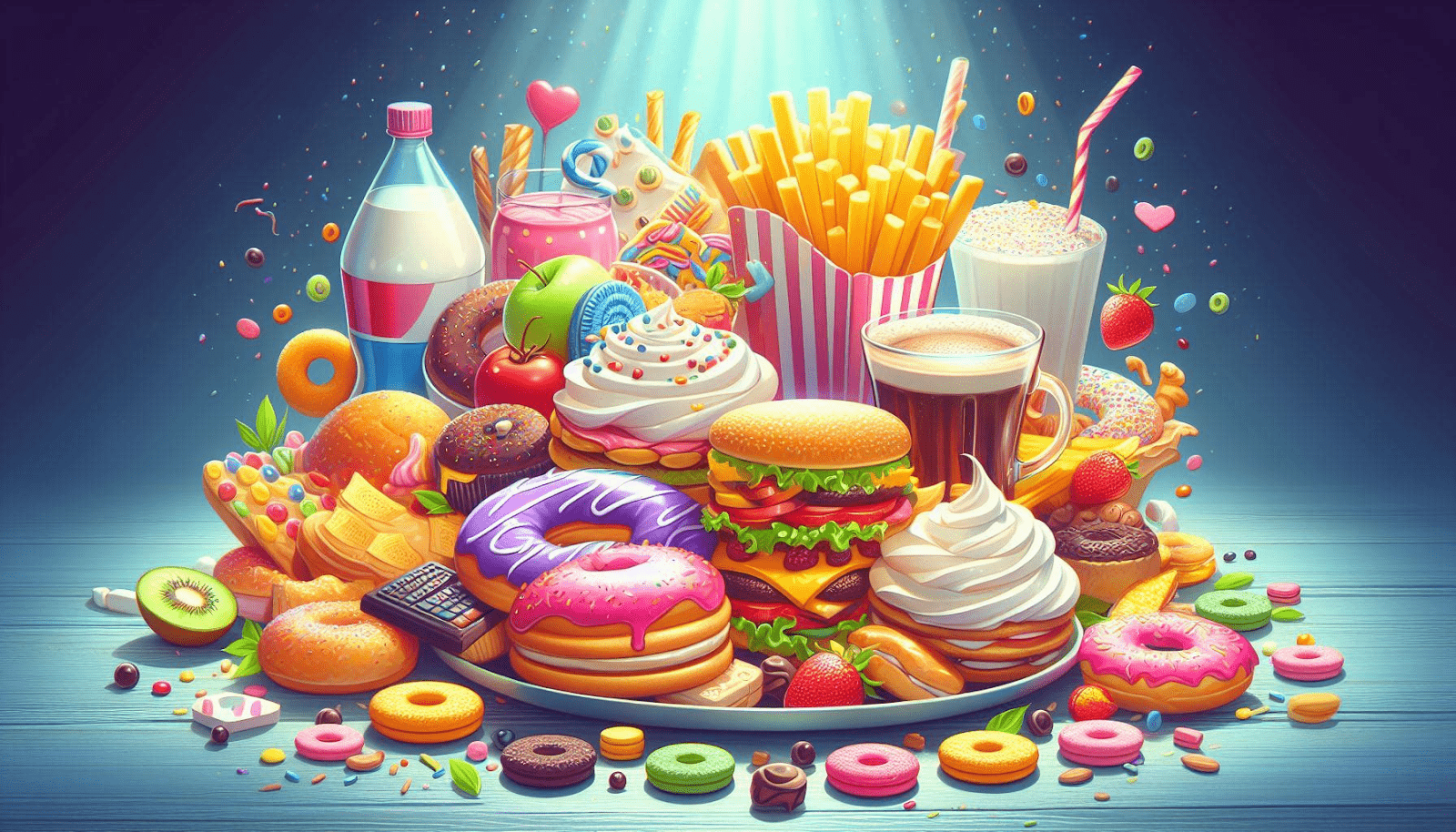Indulging in Moderation: The Surprising Significance of National Junk Food Day

Subheading: Exploring the Origins, Purpose, and Health Implications of Embracing Our Cravings on this Unconventional Holiday
In a world obsessed with clean eating, wellness trends, and the pursuit of optimal health, the mere mention of “junk food” can often elicit a collective gasp of horror. However, tucked away on the calendar, amidst the sea of more virtuous food-centric holidays, lies a day devoted to the celebration of all things indulgent and deliciously unhealthy – National Junk Food Day.
On July 21st of each year, people around the globe are encouraged to embrace their deepest, most primal cravings and indulge in the very foods that nutritionists and health gurus have long warned against. From the salty crunch of potato chips to the molten decadence of chocolate-laden desserts, National Junk Food Day provides a unique opportunity to acknowledge and even revel in our collective love affair with the so-called “guilty pleasures” of the culinary world.
But why, in an era of increasing health consciousness, do we set aside a day to honor the very antithesis of nutritional virtue? The answer, it turns out, lies in a deeper understanding of the role that junk food plays in our lives, and the surprising benefits that can be derived from embracing it in moderation.
The Origins of National Junk Food Day
The origins of National Junk Food Day can be traced back to the late 20th century, a time when the concept of “fast food” and processed snacks were rapidly gaining popularity, particularly among the younger generations. As the convenience and allure of these indulgent treats grew, so too did the concern over their potential health consequences.
However, amidst the growing health-conscious movement, a small but vocal contingent of junk food enthusiasts began to push back, arguing that the occasional indulgence in these beloved foods was not only acceptable but essential to maintaining a balanced and fulfilling lifestyle.
It was this perspective that eventually led to the establishment of National Junk Food Day, a day set aside to celebrate the role that junk food plays in our cultural and personal experiences, and to remind us that the path to true wellness lies not in the complete elimination of these cravings, but in the art of moderation and self-care.
The Psychological and Emotional Benefits of Junk Food
While the health risks associated with excessive junk food consumption are well-documented, the psychological and emotional benefits of embracing these indulgences in moderation should not be overlooked. After all, the comfort and pleasure derived from our favorite snacks and treats can have a profound impact on our overall well-being.
For many, junk food serves as a source of nostalgia, transporting us back to childhood memories of birthday parties, family gatherings, or simple moments of joy and carefree indulgence. The act of savoring a familiar, beloved snack can trigger a powerful emotional response, evoking feelings of happiness, contentment, and a sense of connection to our personal histories.
Moreover, the act of indulging in junk food can also serve as a coping mechanism, providing a temporary respite from the stresses and demands of daily life. The burst of dopamine and serotonin released by the consumption of these calorie-dense, flavor-packed foods can help to alleviate feelings of anxiety, depression, and even boredom, offering a much-needed escape and a moment of pure, unadulterated pleasure.
Of course, it’s important to recognize that the emotional benefits of junk food should be balanced with a healthy, holistic approach to self-care. National Junk Food Day serves as a reminder that occasional indulgence is not only acceptable but can be a valuable tool in maintaining a well-rounded, fulfilling lifestyle.
The Importance of Moderation
The key to embracing the spirit of National Junk Food Day lies in the concept of moderation. While the temptation to completely abstain from these indulgent treats may be strong, particularly in the face of societal pressure to maintain a “clean” and “healthy” diet, the reality is that the occasional junk food fix can actually be an essential component of a balanced lifestyle.
Strict adherence to a restrictive, junk-free diet can often lead to feelings of deprivation, resentment, and even binge-like behavior, as the body and mind seek to fulfill those innate cravings. By allowing ourselves to indulge in moderation on National Junk Food Day, we can satisfy those urges in a controlled and mindful manner, preventing the potential for unhealthy binges or an unhealthy obsession with “good” versus “bad” foods.
Moreover, the act of indulging in junk food on a designated day can also serve as a form of psychological self-care, providing a much-needed break from the constant pressure to be “perfect” and a reminder that true wellness is not about rigid perfection, but rather about balance, flexibility, and self-compassion.
The Health Implications of Junk Food in Moderation
While it’s true that excessive consumption of junk food can have significant negative impacts on our physical health, the occasional indulgence on National Junk Food Day is unlikely to undo all of the hard work and healthy habits we’ve cultivated throughout the rest of the year.
In fact, research has shown that the stress and anxiety associated with an overly restrictive diet can often have a more detrimental effect on our overall well-being than the occasional indulgence in a favorite snack or treat. By allowing ourselves to embrace our cravings in a mindful and controlled manner, we can actually reduce the risk of binge-like behavior and promote a healthier, more sustainable approach to nutrition.
Furthermore, the psychological and emotional benefits of junk food consumption, as previously discussed, can have a positive impact on our physical health as well. The release of feel-good hormones and the sense of comfort and pleasure derived from these indulgences can contribute to improved mood, reduced stress levels, and a stronger overall sense of well-being – all of which can have tangible effects on our physical health.
Embracing the Spirit of National Junk Food Day
As we celebrate National Junk Food Day, it’s important to approach the occasion with a spirit of moderation, self-compassion, and a deep understanding of the role that these indulgences can play in our overall well-being.
Rather than viewing this day as a free pass to indulge in excess, we should consider it an opportunity to mindfully enjoy our favorite treats, savor the experience, and then seamlessly transition back to our healthier routines. By acknowledging and embracing our cravings in a controlled manner, we can harness the psychological and emotional benefits of junk food while mitigating the potential health risks.
National Junk Food Day is not about abandoning our commitment to wellness, but rather about recognizing that true balance and sustainable health require a holistic approach that encompasses both the virtuous and the indulgent. It’s a day to celebrate our humanity, our unique individual preferences, and the joy that can be found in the simple pleasures of life.
So, as July 21st rolls around each year, let us embrace the spirit of National Junk Food Day with a sense of appreciation, self-compassion, and a deep understanding of the role that occasional indulgence can play in our overall well-being. By striking a harmonious balance between healthy habits and the occasional guilty pleasure, we can cultivate a lifestyle that is truly nourishing – for both our bodies and our souls.

